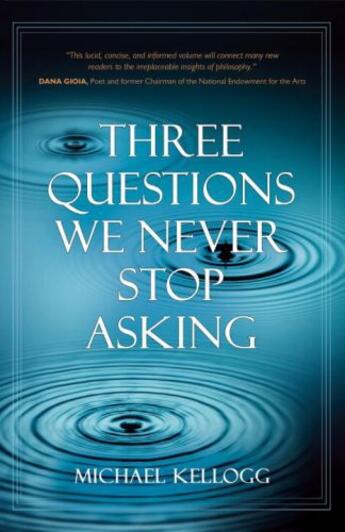-
Nombre de pages : (-)
-
Collection :
(-)
-
Genre :
(-)
-
Thème :
Non attribué
-
Prix littéraire(s) :
(-)
Résumé:
For anyone wishing to discover, or rediscover, philosophy in its original meaning--"the love of wisdom"--this engaging, clearly written, and accessible volume is an excellent place to start. What can I know? What may I hope? What ought I to do? These are three questions that--however much we... Voir plus
For anyone wishing to discover, or rediscover, philosophy in its original meaning--"the love of wisdom"--this engaging, clearly written, and accessible volume is an excellent place to start. What can I know? What may I hope? What ought I to do? These are three questions that--however much we immerse ourselves in the whirl and concerns of everyday life--we cannot, in the end, escape. They intrude themselves, not just in times of personal crisis, but at odd moments and in varied ways. Even those who are not inclined to the discipline of philosophy or even particularly reflective will feel their force on occasion. Whether we develop satisfactory answers or not, wrestling with such questions is part of what it is to be human. In this excellent introduction to the essential issues that have preoccupied philosophers throughout the centuries, the author provides fresh and engaging portraits of the greatest thinkers on each of these questions: Plato and Wittgenstein on the possibility of philosophical knowledge; Kant and Nietzsche on the existence of God; Aristotle and Heidegger on human virtue. The first member of the pair is a builder, the second a destroyer. One explores the promise of a theory, the other the consequences of its ruin. These juxtaposed pairs are not self?contained, however. All six thinkers are engaged in a dialogue with one another on issues that touch our lives directly and profoundly. As Nietzsche explained, "I live as if the centuries were nothing." The author has arranged them in an order that unveils an ever-deepening understanding of the moral, spiritual and intellectual space in which our lives unfold.
Donner votre avis














